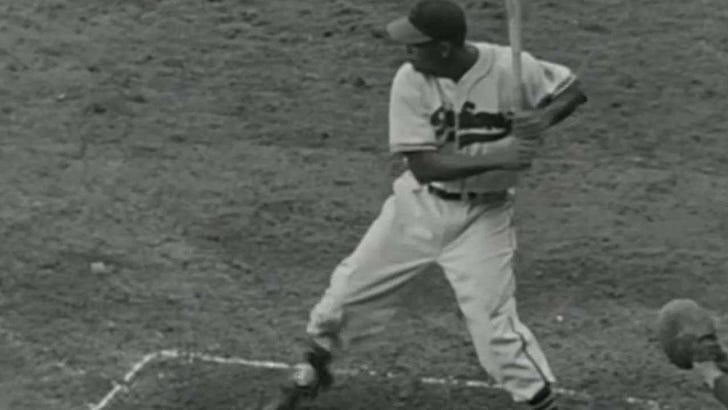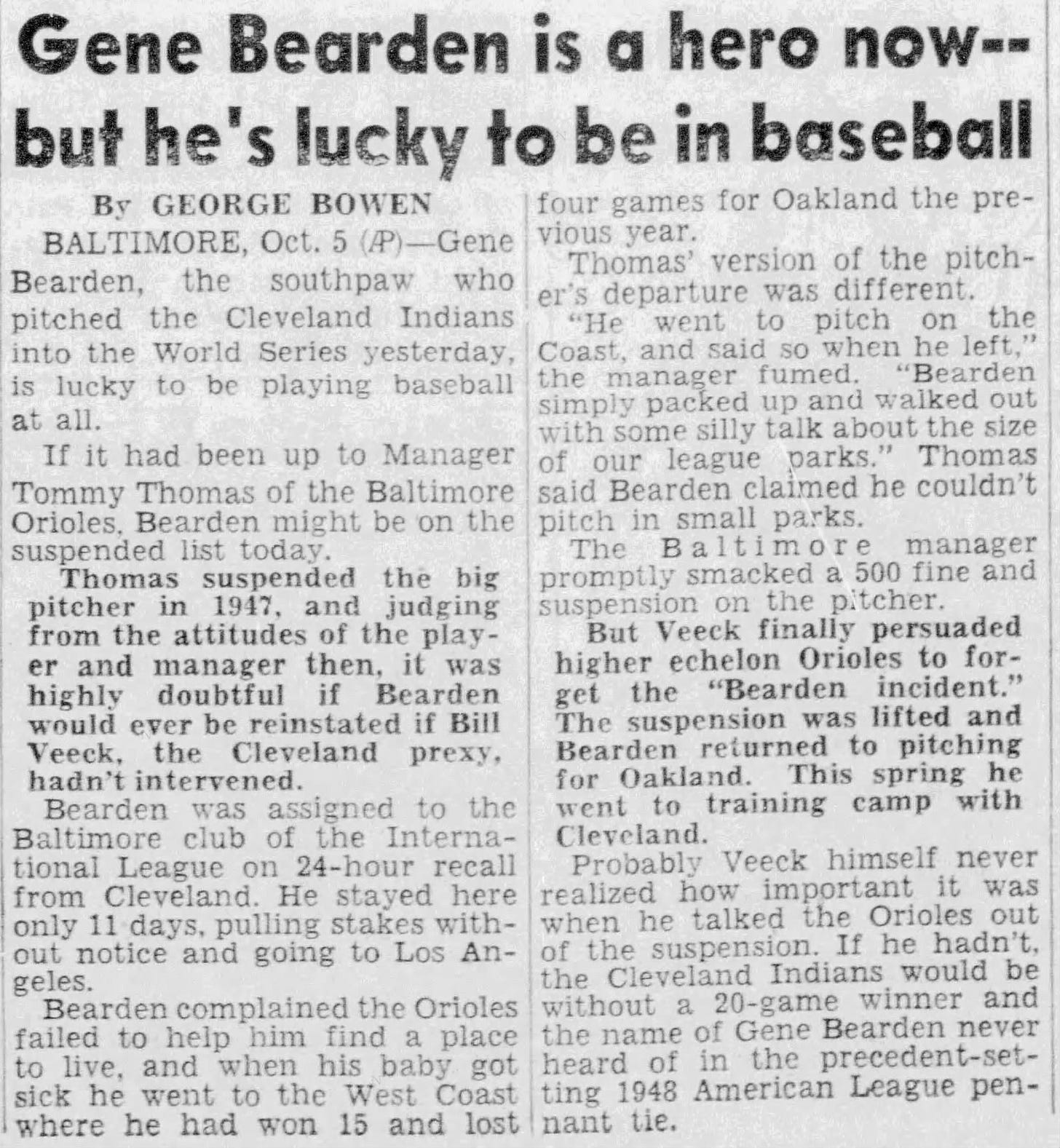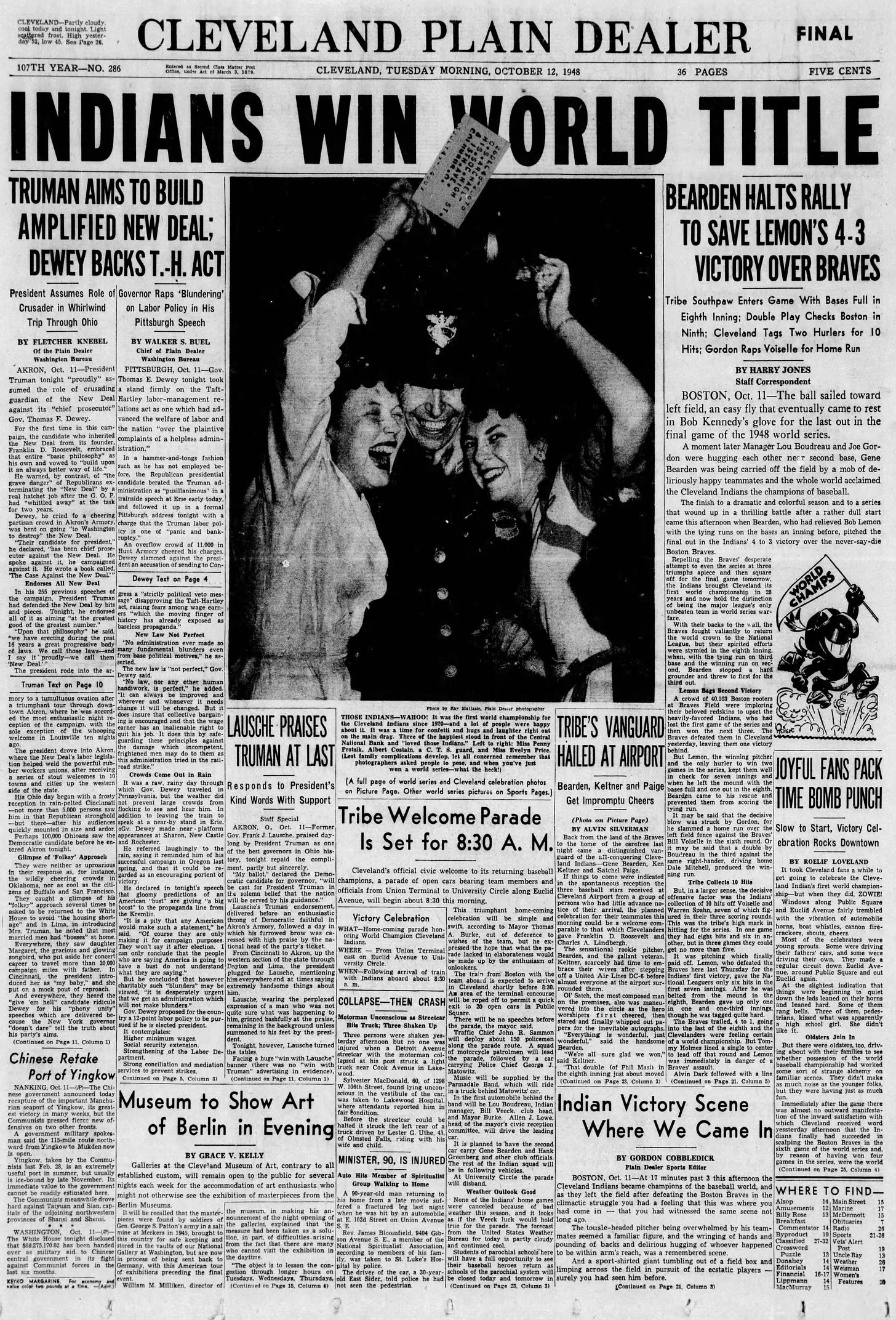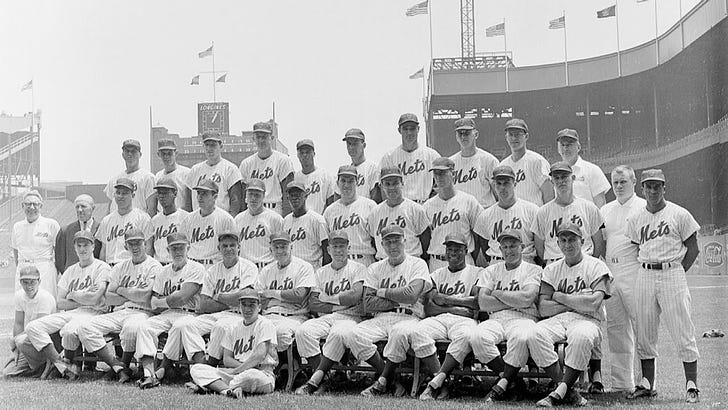The Continued Plight of the Cleveland Guardians
As the Guardians World Series championship drought nears 80 years, Cleveland's baseball team may be the most cursed franchise in pro sports.
When the 2016 Chicago Cubs exorcized the Curse of the Billy Goat, Major League Baseball — and perhaps major team sports as a whole — acquired a new bearer of the heaviest championship cross.
That the Cubs, an organization long associated with losing, ended their 108-year World Series championship drought against Cleveland marked a symbolic passing of the torch. Maybe it didn’t seem that way at the time, but it did. Anecdotally, I heard and read the thoughts of a few Cleveland sports fans who dismissed the city’s baseball franchise losing the 2016 World Series in especially gut-wrenching fashion, as the NBA’s Cavaliers had just pulled off an unprecedented comeback from a 3-1 deficit to beat the first-ever 73-win team in league history.
In hindsight, however, I can confidently say that was cope, as the kids say.
I would never downplay the significance of their rally to beat Golden State in the 2016 NBA Finals, but I also suspect the Cavs would be most Cleveland sports fans’ third choice of which organization they most want to see deliver a title. For one thing, the Cavaliers have mostly been terrible for much of their existence, and not in the lovable loser way that long endeared fans to the Chicago Cubs.
Outside of a stretch from the late ’80s into the ’90s, any sustained success the Cavaliers enjoyed was tied to one man: LeBron James. Had the Akron-born James ended the city of Cleveland’s championship drought during his initial tenure as a Cavalier, I wouldn’t draw the following parallel.
But LeBron’s return to Cleveland after the Decision and his championship win — shortly before leaving again to join the Los Angeles Lakers — makes 2016 feel like the NBA equivalent of the Miami Marlins winning the World Series. That is to say, an otherwise poorly run organization catching lightning in a bottle to win once before returning to the cellar.
More on the Marlins in a bit, but another point comparing the impact of a Cavs NBA Finals to a Guardians World Series or Browns Super Bowl is that the basketball organization only began operations in 1970.
The Browns, in their current iteration, launched in 1999, but they exist as a continuation of the franchise dating back to 1946. The Browns are woven into the fabric of Cleveland sports. The Guardians may be even more so.
I have been thinking about this concept of time as it dictates how long a franchise has been suffering since the Padres lost the NLDS to the Dodgers. Living in San Diego County, I have heard more than a few locals lament that our local club is cursed.
While there’s something to be said about the Padres and Mariners neither having a World Series championship, their histories date back only to 1969 and 1977. Cleveland’s World Series drought was old enough to buy alcohol and rent a car by the time the Padres and Mariners joined MLB.
The 1948 Cleveland Indians defeated the Boston Braves, four games to two, in a remarkable World Series. Larry Doby homered in a 2-1 Game 4, putting a stamp on the first Series ever won by a team with Black players. Doby and Satchel Paige were two of the six Hall of Famers Cleveland had on its roster in '48.
That World Series also featured a complete-game shutout from Indians starting pitcher Gene Bearden, who was nearly held out of baseball altogether before the 1948 season. This Associated Press dispatch explains:
Bearden went on to close out the Series with a Game 6 save.
Cleveland’s victory was its first World Series title since 1920. It will be at least 77 years before the next.
Bowing out of the 2024 ALCS in a four-games-to-one defeat against the New York Yankees ensures the drought will extend for another year. The lopsided series marks an unceremonious end to a season that would otherwise be worthy of celebration.
Cleveland won 92 games in the regular season and led an American League Central that was arguably the best division in baseball — well, outside of the historically inept Chicago White Sox.
The Amazin' Company The 2024 Chicago White Sox Might Keep
The 2024 Chicago White Sox are bad to a degree I cannot fathom. I write the preceding sentence as someone whose baseball fandom was forged watching some inept Chicago Cubs teams on WGN, and having had my interest in the sport wane for years as a direct result of the 101-loss 2012 season.
Landing three teams in the postseason compensates for the White Sox's awfulness, at least. At the front of a pack that featured a fun, young Tigers team and a surprise breakthrough from Kansas City, the Guardians carried the banner.
José Ramírez continued his ascent into another stratosphere of stardom, matching a career-high with 39 home runs and swiping 41 bases. While Shohei Ohtani’s unprecedented 50/50 season stole the show, Ramírez nearly joined the ultra-exclusive club of 40/40 campaigns.
The youngster Steven Kwan earned his first All-Star Game appearance, delivering production at the plate to complement the Gold Glove defense he already showcased in his first two seasons. This was a good team with some great players.
Sometimes in the playoffs, however, good teams just run into buzzsaws. The Yankees have looked like the class of the American League for much of the 2024 season, and Giancarlo Stanton hitting home runs like he’s back with the Marlins during the playoff run only amplifies the firepower this New York team boasts.
But it’s those times when Cleveland lost in the postseason to opponents it perhaps shouldn’t have that make the Guardians’ burden so heavy.
We return to the Marlins. Back when the club was named the Florida Marlins and before it was apparent the organization existed as a never-ending fire sale, they won the first of two World Series championships against Cleveland in 1997.
Before 2016 against the Cubs, 1997 was the last time Cleveland reached the Fall Classic. And it’s not that the 2016 Cubs nor the 1997 Marlins weren’t great teams — with very few exceptions in MLB history, only good-to-great teams qualify for the playoffs, and there is no bad team that reaches the World Series.
The 2016 Cubs racked up 103 regular-season wins and were under tremendous pressure to deliver a World Series that year. The 1997 Marlins won 92 games, which was more than Cleveland that same season.
It’s more the circumstances of those Cleveland defeats than the players who beat them. After winning the World Series in 1997, Florida shed chunks of its roster — Gary Sheffield was traded to the Dodgers, Moisés Alou went to Houston, where he had a career year, and multiple-time Gold Glover Devon White landed with expansion Arizona and earned an All-Star appearance.
The 92-win Marlins of 1997 became the 54-win Marlins of 1998. Their World Series defeat of a Cleveland lineup featuring Jim Thome, Omar Vizquel, Manny Ramírez, Marquis Grissom, and Sandy Alomar felt like the Sports Gods playing a cruel joke.
Likewise, for the once most-cursed franchise in all of sports to shed its century of despair by overcoming a 3-game-to-1 deficit has the feeling of a curse being transferred.






